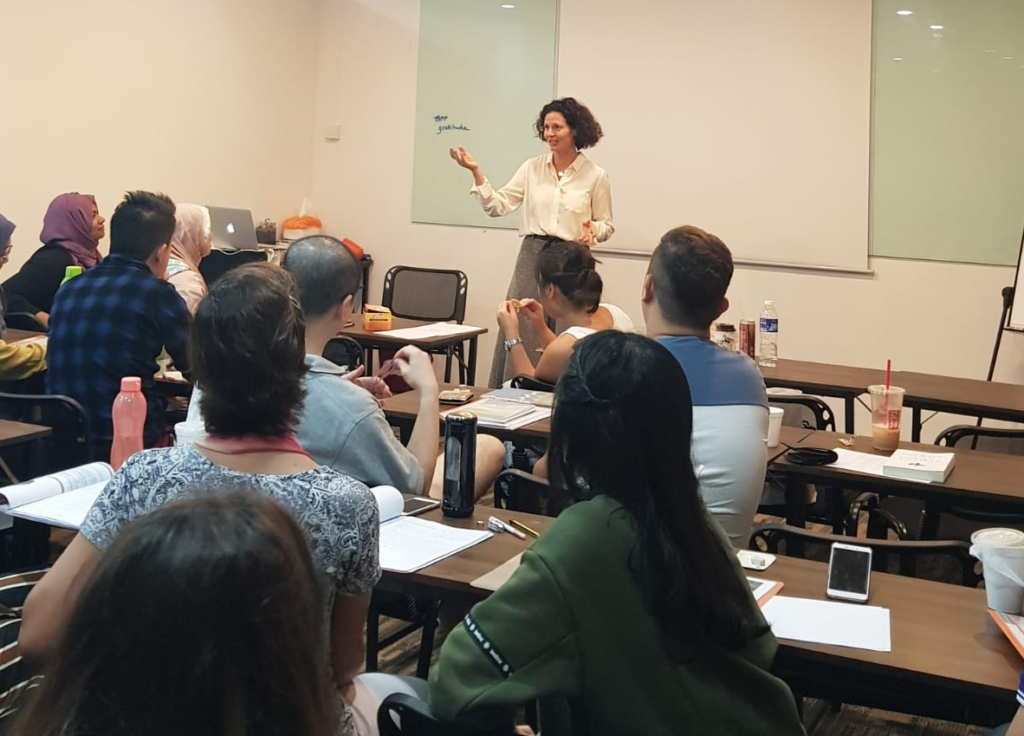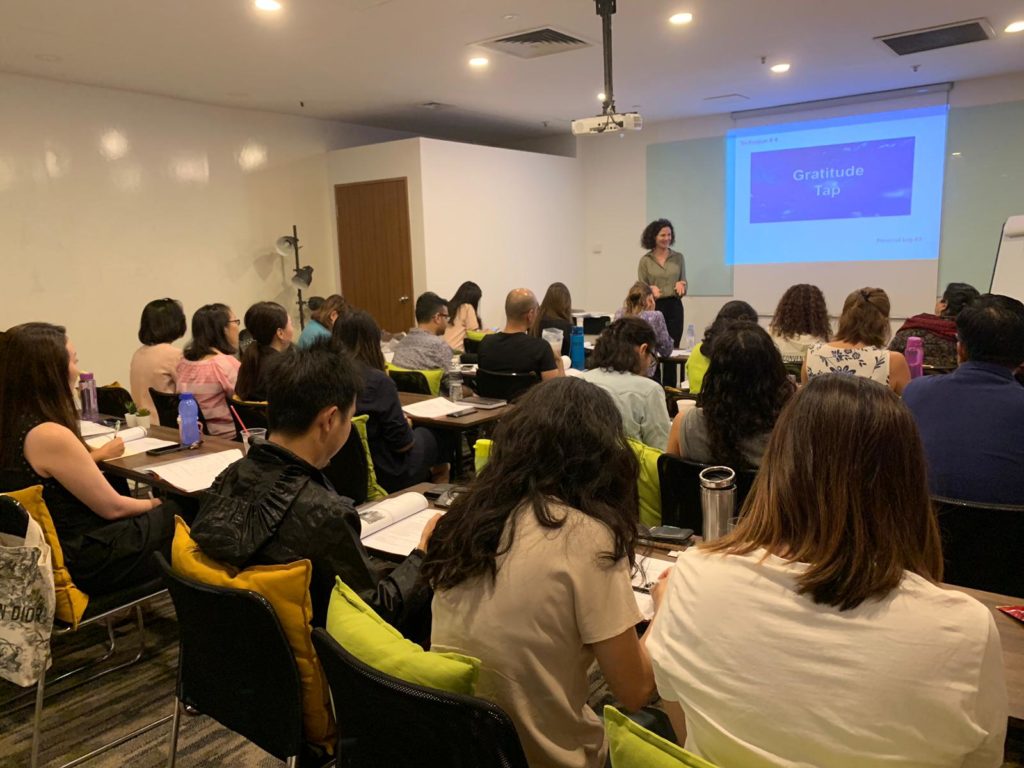How are YOU feeling
right now?
Sometimes life can seem frantic and full of challenges. If you’re feeling stressed, can’t focus, searching for clarity or needing some peace of mind, it’s time to build a toolbox of practical mindfulness techniques to use throughout your day to help you manage stress, cope with challenges, cultivate focus and maintain emotional balance.
Mindfulness is a trainable skill, like learning to juggle or ride a bike. It is not tied to any particular faith or belief, but is backed by science. When you practice these skills, you learn how to improve attention and focus, reduce emotional reactivity, reduce your stress, build higher-quality connections with your family, friends and colleagues and feel happier.
Mindfulness is for everyone: Research is showing that mindfulness has wide-ranging benefits for all of us: reducing stress, increasing positive emotions and optimism, building resilience and increasing your overall peace of mind and well-being. This means responding to stress and coping with the pressures of life better, enjoying higher quality connections with friends and family, feeling more positive, and enjoying better psychological, emotional and physiological well-being. In a nutshell mindfulness helps you respond better to all the ups and downs, difficult or negative situations, stress and pressure in life. It’s especially helpful if you feel that life is tough and wearing you down, the fun has gone and it’s all about stress and struggle and you feel overwhelmed.
Mindfulness in the workplace: Mindfulness meditation is now being used to improve workplace functioning by many organizations including corporate giants such as Apple, Intel, Google, Nike, Aetna and Goldman Sachs. Founder of the Search Inside Yourself program, Chade Meng Tan, states mindfulness is going to be seen as “fitness for the mind” (Confino, 2014).
In a New York Times interview by D Gelles in 2015 the CEO of Aetna, Mark T. Bertolini, stated that over a quarter of Aetna’s work force of 50,000 employees have participated in at least one mindfulness class with a reported average of 28% reduction in their stress levels, 20% improvement in sleep quality and 19% reduction in pain. According to Mr Bertolini these employees have also become more effective, gaining an average of 62 minutes per week of productivity each ($3,000 per employee per year).
Mindfulness in clinical therapy: Mindfulness is now integrated in many clinical therapies such as Mindfulness-Based Stress Reduction (MBSR), Mindfulness-Based Cognitive Therapy (MBCT) and Acceptance and Commitment Therapy (ACT). In fact there are over 600 published research papers and articles on the benefits and effectiveness of mindfulness in every sphere of life.
The science: When we consistently practice mindfulness we lay down and strengthen new neural pathways that change the grey matter of our brain as documented in a recent Harvard University Meditation study. In other words what we consistently and repeatedly think about and rest our attention on shapes (and reshapes) the neural networks in our brain. This means we are never stuck! We are always free to choose new ways of thinking, new ways of feeling, and new ways of responding to the world around us.
Mindfulness teaches us how.












